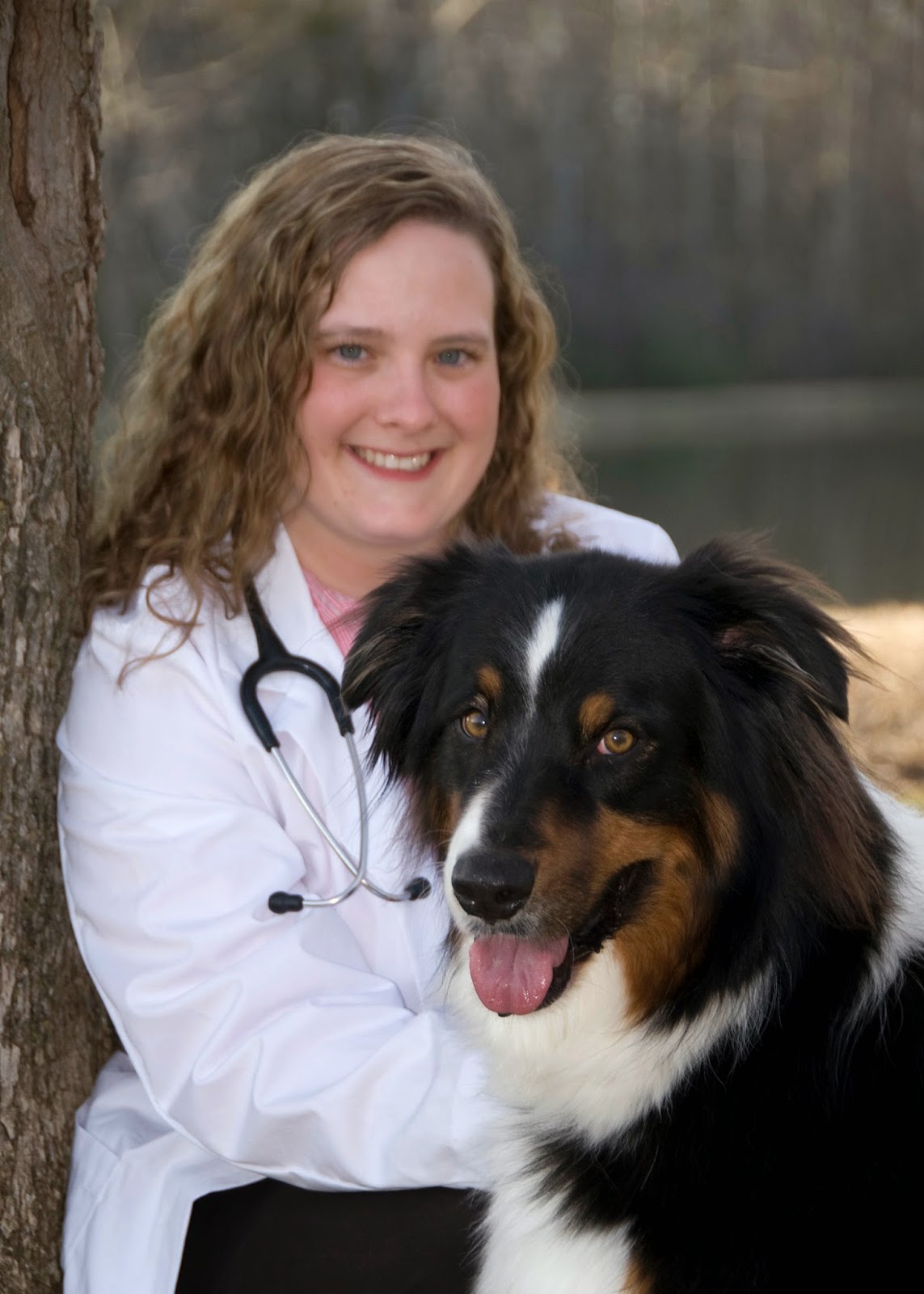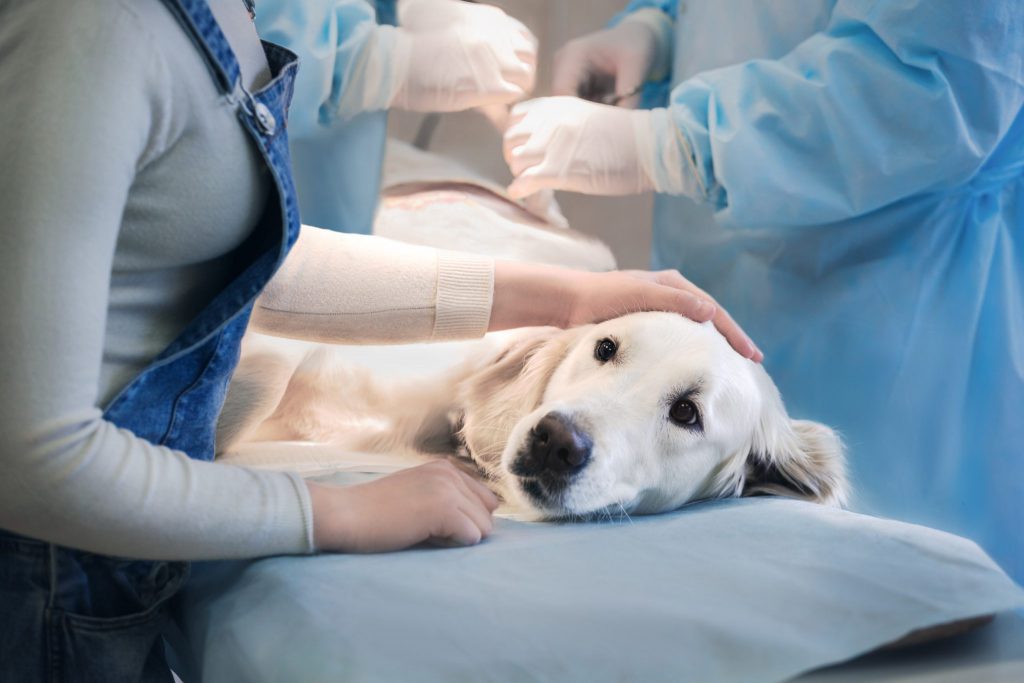

Many times, puppy parents don’t know that their dog has hip dysplasia until it is too late.
Hip dysplasia can happen in many breeds, including mixed breed “pound puppies.” Most notice a change in their dog while they are walking, running or trying to go up or down the stairs. The most common thing that is sees is “bunny hopping” or a “sway” in the hips when the dog walks – even before pain or limping begins.
If your dog has been diagnosed with hip dysplasia, you may want to learn more about your options. Here we will discuss several options in detail that your veterinarian may recommend. Each case is different, so be sure to work closely with your pet’s vet.

Regardless of how old your dog is, many treatments and “lifestyle changes” are available that can help most dogs with hip dysplasia.
1. Weight Management
Every dog that has been diagnosed with hip dysplasia can benefit from maintaining a healthy weight and body condition score. To learn more about your dog’s body condition score, please refer to this article.
If your dog is overweight or obese, take measures to reduce their weight, as this will alleviate the forces on their hip joints. Dogs with a normal body weight need to stay within their healthy weight range and maintain muscle with low-impact exercise – which we will talk about a little later. If you need help putting your dog on a weight management plan – talk to your veterinarian.
2. Joint Supplements
Almost every dog with hip dysplasia can benefit from taking joint supplements. Joint supplements are easily available “over-the-counter” – often online, in pet stores and in your veterinarian’s office.
It is important to select a joint supplement that contains beneficial ingredients – not every “joint supplement” is the same. The two most important ingredients are glucosamine and chondroitin sulfate. These are substances that nourish the cartilage in all joints. They help to provide the “cushion” and lubrication that is necessary to keep joints healthy and functioning. Joint supplements that only contain glucosamine and chondroitin sulfate typically help dogs with mild to moderate arthritis.
Dogs with more severe arthritis can still certainly benefit from these supplements. It is important to remember that the joint supplement won’t control their pain as well as if they were taking other medications or using other treatments.

Omegas are fantastic for dogs of all ages. They have been shown to reduce inflammation all over the body, from joints to the heart. When selecting a joint supplement with glucosamine and chondroitin sulfate, look for a product with other beneficial ingredients, such as fish oil, krill oil, hemp oil, and flax seed oil. You will notice that your dog not only feels better, they look better too – omega-3 rich oils in the diet support skin health too – leaving them with a shiny, glossy coat.

Young and middle-aged dogs are often treated for hip dysplasia with surgery. Many times, other treatments have been tried and have not provided relief. The most common procedures are juvenile pubis symphysiodesis (for puppies 12-16 weeks of age), triple pelvic osteotomy (TPO) (for puppies 5-12 months of age). Procedures for older dogs include total hip replacement and femoral head and neck ostectomy (FHNO). The FHNO is the most common procedure for those that cannot afford a total hip replacement. Talk to your veterinarian about which procedure is best for your dog’s situation. A referral to a surgeon may be necessary.
NSAIDs, or non-steroidal anti-inflammatories, are pain relievers that help your dog to feel better. Often, these are used in moderate to severe cases of hip dysplasia, when other treatment options aren’t available. NSAID therapy can exacerbate other conditions, so it is important to talk to your vet about the safest options.
Adequan is an injectable medication that helps to prevent cartilage breakdown. It is similar to the glucosamine in oral products, but works directly by preventing enzymes from breaking down cartilage. The downside to this mediation is cost and having to give injections. These injections can be given by your veterinarian or you can give them at home under your vet’s direction.

Physical therapy is a wonderful option for dogs with hip dysplasia – especially if they are good surgical candidates. PT can help reduce the recovery time from surgery and helps to keep muscle mass and tone healthy.
Dogs with hip dysplasia benefit from low-impact exercise, such as slow walking, swimming and range-of-motion exercises.
Acupuncture can greatly help to control the pain associated with hip dysplasia. Many general practitioners, pet physical therapists and even veterinary surgeons practice acupuncture and can set your dog up for routine care.
Hip & Joint Supplement
[/et_pb_text][et_pb_image src="https://vetnaturals.com/wp-content/uploads/2017/04/amazon-btn-150.png" url="https://www.amazon.com/Veterinary-Naturals-Hemp-Hips-Inflammation/dp/B01N2S774K/ref=lp_16740413011_1_1?srs=16740413011&ie=UTF8&qid=1506810789&sr=8-1" _builder_version="3.0.72" show_bottom_space="on" /][/et_pb_column][et_pb_column type="1_4"][et_pb_text _builder_version="3.0.72"]
Hip & Joint Supplement
[/et_pb_text][et_pb_image src="https://vetnaturals.com/wp-content/uploads/2017/04/chewy-btn-150.png" url="https://www.chewy.com/veterinary-naturals-hemp-hips/dp/152766" _builder_version="3.0.72" show_bottom_space="on" /][/et_pb_column][et_pb_column type="1_4"][et_pb_text _builder_version="3.0.72"]
Probiotic with Skin & Coat Supplement
[/et_pb_text][et_pb_image src="https://vetnaturals.com/wp-content/uploads/2017/04/amazon-btn-150.png" url="https://www.amazon.com/Veterinary-Naturals-Health-Probiotic-Supplement/dp/B06XTBV8SX" _builder_version="3.0.72" show_bottom_space="on" /][/et_pb_column][et_pb_column type="1_4"][et_pb_text _builder_version="3.0.72"]
Probiotic
[/et_pb_text][et_pb_image src="https://vetnaturals.com/wp-content/uploads/2017/04/chewy-btn-150.png" url="https://www.chewy.com/veterinary-naturals-hemp-health/dp/152768" _builder_version="3.0.72" show_bottom_space="on" /][/et_pb_column][/et_pb_row][/et_pb_section]


